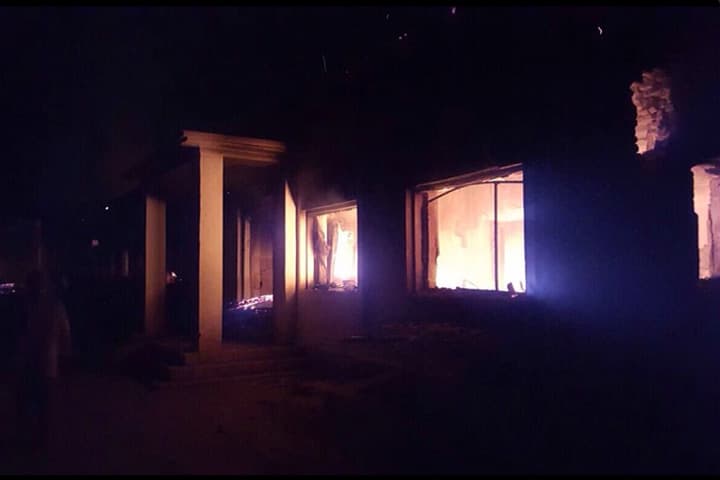Advertisement
The U.S. ‘Mistake’ That Ruined An Afghan Hospital
ResumeThe U.S. airstrike on the hospital in Kunduz. The top U.S. commander in Afghanistan faces tough questions from Congress. We’re looking for what really happened.

Early Saturday morning in Kunduz, Afghanistan, an American AC-130 gunship – “The Lord of Close Combat,” the Air Force calls it – rained sustained fire down on a hospital run by the international aid group Doctors Without Borders. Twenty-two patients and hospital staff died. A nurse reported patients in intensive care burned in their beds. Yesterday, the top U.S. general in Afghanistan took responsibility, said it was a mistake. But there is a lot we still don’t know. And Doctors Without Borders calls it a war crime. This hour On Point, what happened that night in Kunduz?
-- Tom Ashbrook
Guests
Dr. Bart Janssens, director of operations for Médecins Sans Frontiers / Doctors Without Borders.
Matthew Rosenberg, national security reporter for the New York Times. Former longtime Afghanistan correspondent for the same paper. (@mrosenbergnyt)
Margherita Stancati, reporter in Afghanistan for The Wall Street Journal. (@margheritamvs)
Michael Golembesky, retired staff sergeant in the US Marine Corps, where he was deployed in Afghanistan and Iraq. Author of "Level Zero Heroes." (@LevelZeroHeroes)
From Tom’s Reading List
New York Times: Senate Briefed on Doctors Without Borders Hospital Airstrike — "Gen. John F. Campbell, the American commander in Afghanistan, told lawmakers Tuesday that the airstrike that 'mistakenly struck' a Doctors Without Borders hospital in Kunduz and killed 19 people resulted from 'a U.S. decision made within the U.S. chain of command.'"
The Wall Street Journal: Doctors Without Borders Closes Afghan Hospital — "The U.S. military said it conducted an airstrike in the vicinity of the hospital at that time to protect American special-operations forces on the ground who came under enemy fire. It acknowledged that the medical facility may have been damaged. But it was unclear exactly where the explosives were dropped and for how long, military officials said."
The Intercept: The Radically Changing Story of the U.S. Airstrike on Afghan Hospital: From Mistake to Justification -- "Even cynical critics of the U.S. have a hard time believing that the U.S. military would deliberately target a hospital with an airstrike (despite how many times the U.S. has destroyed hospitals with airstrikes). But in this case, there is long-standing tension between the Afghan military and this specific MSF hospital, grounded in the fact that the MSF – true to its name – treats all wounded human beings without first determining on which side they fight."
This program aired on October 7, 2015.